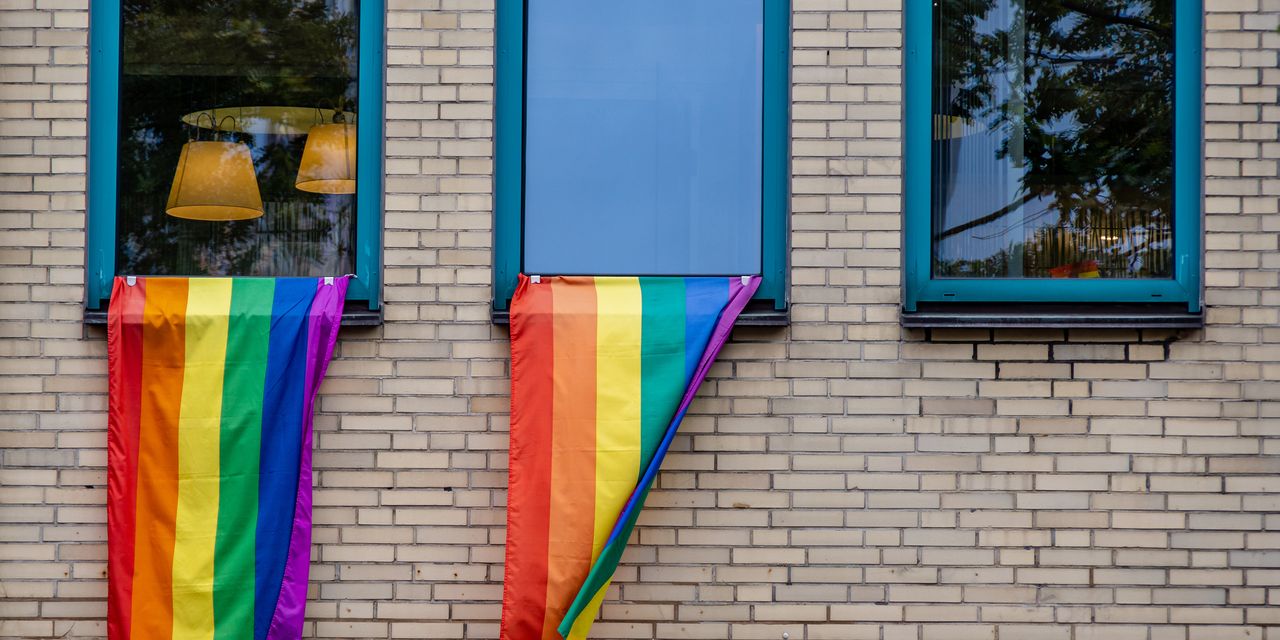: The LGBTQ+ community can ‘age gracefully with some form of dignity,’ thanks to inclusive senior housing

A $14 million development to create 55 new affordable apartments in Portland, Maine, for the LGBTQ+ community and its allies aged 55 and older is part of a small but growing movement to create safe and inclusive senior housing.
The Portland development is part of an effort to help lesbian, gay, bisexual, transsexual or queer older adults “age gracefully with some form of dignity in a place that’s accepting and supportive and will help with the challenges of aging,” said Chris O’Connor, executive director of the Equality Community Center.
ECC is a nonprofit organization and community gathering space for the LGBTQ+ community that is leading the Portland, Maine project along with the Developers Collaborative.
The project, which aims to break ground in the spring of 2024 and open its doors in 2026, has been about nine years in the making so far, O’Connor said. While the housing will be open to the broader population, it’s specifically targeted to the LGBTQ+ community and its allies, he said.
“There’s the need and desire for any affordable elder housing. But there’s been a call from the community for this type of housing specifically. Having this housing adds a certain amount of relief for a population that may fear having to go back in the closet as they age. LGBT folks experience fear of retaliation and discrimination as we age and rely on others for care,” O’Connor said.
Read: Retirees are getting squeezed out by big rent increases—here are some ways to combat it
While there are senior housing communities that appeal to a range of interests and demographics — such as retirement communities for artists, yoga-enthusiasts, lifelong learners and even retired letter carriers — this development is part of a nationwide movement toward housing developments geared to older LGBTQ+ residents.
Triangle Square in Los Angeles, which opened in 2007, was the nation’s first affordable housing apartments for the older LGBTQ+ community. Meanwhile, The Pryde community in Boston is scheduled to open next year and other projects are in development in Dallas and Detroit. Similar projects exist in markets such as Fort Lauderdale and Philadelphia.
The need for affordable elder housing is a pressing issue nationally. Older adult renters are more likely to pay a larger proportion of their income for rent than the population as a whole, and this places them at increased risk of housing instability and homelessness, according to Justice in Aging.
More than 10 million households headed by someone 65 and over are considered cost burdened because they pay more than a third of their income on housing, with half of these paying more than 50%, according to the Joint Centers for Housing Studies of Harvard University.
Read: Is this all there is? How to plan a more satisfying retirement.
Meanwhile, one of the most significant concerns for LGBTQ+ elders is safe, affordable housing, according to SAGE, which provides advocacy and services to LGBTQ+ older adults. SAGE estimates that there are over three million LGBTQ+ seniors in the U.S., with that number expected to double by 2030.
According to an Equal Rights Center report, 48% of older same-sex couples applying for elder housing were subjected to discrimination. Such discrimination puts LGBTQ+ elders at greater risk for chronic health problems, social isolation, poverty, and premature mortality, the center said.
A study from the U.S. Department of Housing and Urban Development found that same-sex couples and transgender people faced discrimination in rental housing markets based on their identities.
“People fear dealing with a landlord that may discriminate against them or their partner. They don’t want to have to go back into the closet as they age. They want to live their lives,” O’Connor said.
Many older LGBTQ+ adults don’t have children or family to support them, so being surrounded by a community center and having a supportive residential community in the building will help with the challenges of aging, O’Connor said.
“With the housing crisis, more and more people are being forced out of the communities and away from the facilities that they need. This will provide proximity and access to healthcare, access to the bus line, be adjacent to the community center programming and service as opposed to getting priced out of the city and what it offers,” O’Connor said.
“The fear and anxiety that exists in elder populations, especially the LGBT population, about finances, quality of life and healthcare – this helps alleviate a little of that fear,” he said.

Comments are closed.